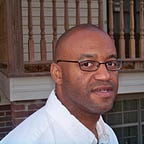Marian Wright Edelman: The Nation’s Fiercest Child Advocate Steps Aside
(Originally published in The Crisis magazine’s January 2021 edition.)
In 1967, Marian Wright Edelman advised Dr. Martin Luther King, Jr. and Senator Robert Kennedy to recommit themselves in the fight against chronic poverty. Not yet 30-years old, she was the Director of the NAACP LDF, Inc. in Mississippi. Her prodding encouraged King to launch the Poor People’s Campaign a year later. For Kennedy, who she escorted on a poverty tour in the Mississippi Delta, her insistence elevated poverty reduction at the forefront of his future presidential campaign.
In September 2020, Edelman stepped down as president and CEO of the Children’s Defense Fund (CDF). However, she remains a member of CDF’s board of directors and continues to work as the organization’s president emerita in the Office of the Founder. She departs the CEO position as the most influential youth advocate since Mary McLeod Bethune in the 1930s. Her 47 years at the CDF represented two approaches of anti-poverty activism — grassroots mobilization and institutional advocacy.
Born in Bennettsville, South Carolina in 1939, Edelman developed a righteous indignation to injustice at a young age. As a student at Spelman College, she was arrested in 1960 for protesting racial segregation in Atlanta. Her involvement in the sit-ins brought her into the movement circle of Ella Baker and other activists who made up the nucleus of the Student Nonviolent Coordinating Committee.
After graduating Yale Law School, Edelman moved to Mississippi where she became the first Black woman attorney in the state’s history. She soon developed a reputation as a fierce advocate for Head Start through her work with the Child Development Group of Mississippi. Her tireless efforts nearly led to the passage of the Comprehensive Child Development Act before it was vetoed by President Richard Nixon. Twenty years later, she won a monumental victory with the passage of the Child Care and Development Block Grant.
At the CDF, she displayed an undying belief that government institutions are morally obligated to resolve poverty. There is verifiable evidence, she insisted, that government-backed programs such as Head Start and Medicaid produce positive outcomes for poor children. The challenge was whether government institutions and policymakers have the political will to establish and sustain these programs.
Backed by an apparatus of regional, state, and local affiliates, the CDF operated as a social policy ombudsman under her leadership. It monitored regulatory and budget decisions affecting policies such as Medicaid, children’s health insurance, Head Start, and tax credit programs. It also published research reports tailored for lawmakers on issues pertaining to racial disparities and school discipline, child poverty, and gun violence.
Among Edelman’s signature initiatives was the formation of the Black Community Crusade for Children (BCCC) in 1990. Her impetus for the BCCC was announced in a commencement speech at Howard University’s graduation, calling “the nation to action to save black children — and all children — and to replace the current climate of despair with one of hope and struggle.” The BCCC blossomed into a national network of prominent advocates and public health officials. The Black Student Leadership Network (BSLN) was formed in 1991 as the BCCC’s youth arm.
The summer freedom school program was the centerpiece of CDF/BCCC/BSLN activities. Staffed by hundreds of students and young adults, freedom schools spread to dozens of cities and educated thousands of low-income children. The CDF’s ‘Haley Farm’ — a 157-acre farm purchased from author Alex Haley in 1994 — served as a movement training center for freedom school activists, child advocates, and religious leaders.
Through the freedom schools, Edelman may have rescued the U.S. Department of Agriculture’s Summer Food Service Program (SFSP) from budget cuts. Claiming that the program had few participants, some congressmembers proposed reorganizing the program to the detriment of poor families. Countering this effort, she matched freedom schools to SFSP feeding sites. This surged eligibility participants — hungry children in the summer months — into the SFSP, thus refuting claims that it was underutilized.
Edelman’s biggest disappointment in 50 years was President Bill Clinton’s welfare reform legislation in 1996. The debate was particularly difficult given the Edelman family’s close ties to the Clintons. In opposition to the bill, she rallied 200,000 people to the “Stand for Children” March on June 1, 1996 in Washington, D.C. Her husband, Peter Edelman, even resigned as the Assistant Secretary in the Department of Health and Human Services.
Despite this split, Clinton awarded Edelman the Presidential Medal of Freedom in 2000. The distinction is the nation’s highest civilian award, yet it does not fully capture the breadth of her accomplishments. By marrying grassroots mobilization and institutional advocacy, she influenced nearly every anti-poverty legislation at the federal level in the last 50 years. At the same time, she situated communal caregiving institutions and Black advocates at the center of important social policy debates.
Edelman leaves the CDF with outsized legacy. As a fitting tribute, she will be remembered as the ‘conscience’ of the nation and a prophetic voice — a precursor to the Black Lives Matter movement — directly responsible for saving the lives of thousands of children. She belongs in the pantheon of freedom fighters — along with Bethune, Baker, King, and Kennedy — that breathed justice into the American democratic experiment.
.
